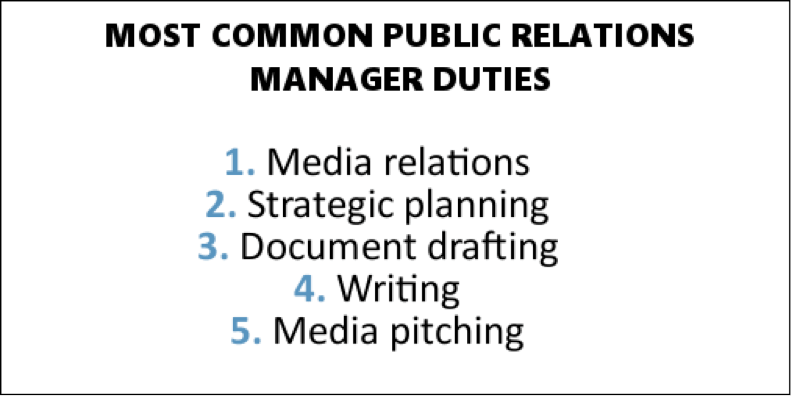 Career growth can happen organically in some jobs.
Career growth can happen organically in some jobs.
That’s when you are presented with opportunities to secure more senior roles as long as you continue plugging away at your work.
We see this a lot in many trade professions.
Unfortunately for us, public relations is not like those jobs.
To see career growth in PR, you must be aware of the necessary skills and qualifications for your desired position.
Then, you must work towards learning those skills and gaining those experiences.
Otherwise, you won’t be able to demonstrate to hiring managers why you are a capable candidate.
So what exactly do you need to learn?
As a young PR professional, I needed to know which skills and experiences were necessary to advance my own career to the next step.
In my case—and likely for many other young professionals—the next logical career growth step would be a PR manager role.
With this in mind, I conducted a comparative analysis between entry-level and manager public relations job postings.
I analyzed the key differences between the skills, qualifications, and role responsibilities of these two roles to discover what exactly young PR professionals need to know to uncover more career growth opportunities.
Here are the key results from that study.
Gain Media Relations Experience
The study identified media relations as one of the two most common PR manager responsibilities.
Unsurprisingly, it was also one of the top five most in-demand skills for potential manager candidates to possess.

It’s important to note this skill was consistently required of PR managers regardless of whether or not the role focused on media relations work.
If your role doesn’t involve media relations work, speak with your boss.
See if you can work more closely with your organization’s media relations team.
This experience will allow you to become a more well-rounded PR practitioner.
Focus More on Strategic Work, Less on Tactical Work
I discovered that manager roles place more emphasis on project strategy.
Hiring managers are looking for experience being responsible for the overall success of projects, such as budgeting, resource management, and strategic planning.
Entry-level positions did not involve many strategy-related tasks.
Instead, they involved tactical work, such as research tasks, document drafting, transcribing, data entry, and administrative support.
If you are serious about career growth, volunteer for opportunities to become more involved with strategic planning work.
Start small with tasks such as developing a social media strategy for a client or a content strategy for your business’s blog.
Gain Employee Development Experience
The study revealed that PR managers must possess skills that promote employee development, such as coaching, mentoring, management, leadership, and performance evaluation.
This is no surprise because managers often have a team of staff working for them.
So what should you do if you are a young professional who aspires to become a manager?
Seek opportunities to lead small projects that require people management even if only on a small scale.
Let’s say there’s an upcoming community event your manager is responsible for organizing.
Request the opportunity to manage a small aspect of that event, such as guest registration.
By taking on this small piece of work, you will gain experience preparing and managing the staff that will work with you on guest registration at the event.
Writing Remains the Most Important Skill for Practitioners
Sixty-seven percent of entry-level positions and 70 percent of manager positions identified writing as being an important skill, which was by far more common than any other skill.
This suggests that writing remains one of the most important skills for all public relations professionals.
Why is All This Important for PR Career Growth?
The purpose of this study was to identify the key skills, qualifications, and responsibilities junior public relations practitioners must master to move into management positions.
If you have made career growth a priority, this study provides some insight into the key areas you should explore.
But more importantly, my hope is to inspire young PR professionals to become more proactive about their career growth.
Don’t be complacent and let others dictate the direction your career takes.
Grab the reins, speak up for yourself, and relentlessly pursue the career path you desire.